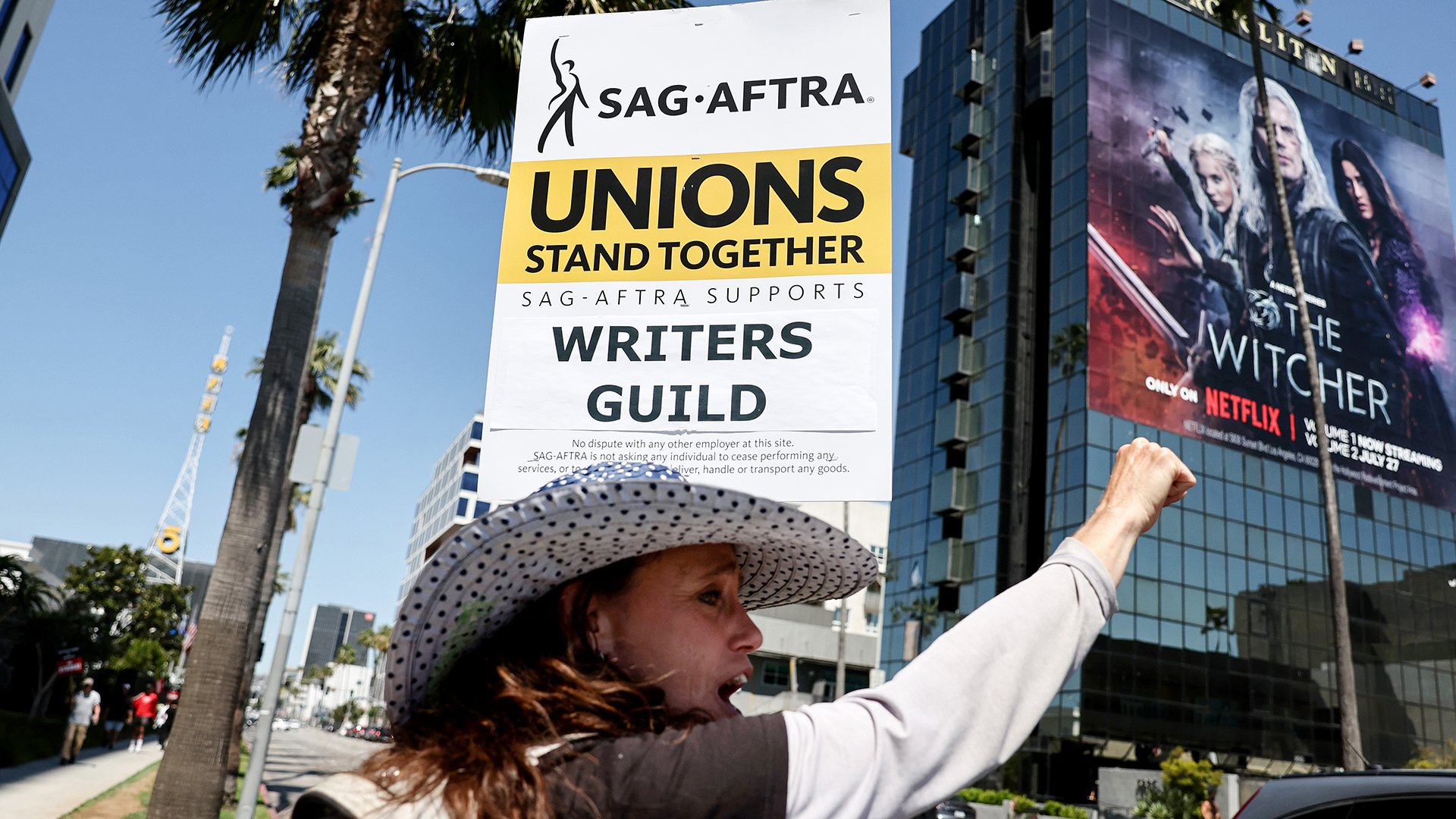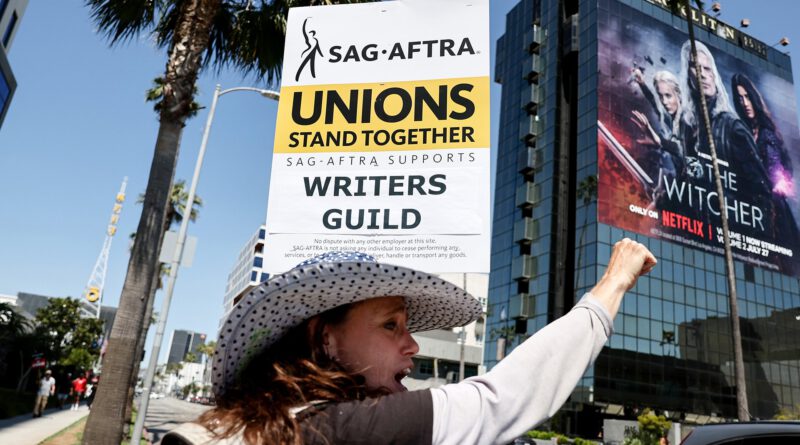Hollywood actors may be about to strike. Here’s what that means.

Hollywood may be about to enter a near-total shutdown.
In the early hours of Thursday morning, the Screen Actors Guild – American Federation of Television and Radio Artists (SAG-AFTRA, the organisation that represents actors in the U.S.) confirmed that its negotiating committee has unanimously voted to recommend strike action. The vote came after talks with the Alliance of Motion Picture and Television Producers (AMPTP, the organisation that represents studios and streamers) broke down.
SAG-AFTRA’s national board will vote on whether to strike on Thursday morning. At this stage, though, a strike seems inevitable.
Why might actors go on strike?
Remember back in May, when the Writers Guild of America (WGA) went on strike (a strike that is still ongoing) after their existing deal with the AMPTP ended without a new deal being reached? Well that’s pretty much what’s happened here, too.
The negotiations between SAG-AFTRA and the AMPTP have been up and down in recent weeks. SAG leaders initially cited “extremely productive” talks towards the end of June; then Hollywood A-listers including Jennifer Lawrence and Meryl Streep signed a letter to say they were prepared to strike for the best deal; then the deadline for negotiations was extended by two weeks; finally, as a last port of a call, a federal mediator was brought in to try and help both parties reach an agreement. Clearly, it hasn’t worked.
Although sides haven’t gone into specifics about the sticking points of negotiations, SAG has previously cited reduced income and residuals and the threat of artificial intelligence as key points of a new deal. Streaming residuals, and the use of AI, are also key points for the WGA.
“SAG-AFTRA negotiated in good faith and was eager to reach a deal that sufficiently addressed performer needs, but the AMPTP’s responses to the union’s most important proposals have been insulting and disrespectful of our massive contributions to this industry,” said SAG-AFTRA president Fran Drescher in a statement.
“The companies have refused to meaningfully engage on some topics and on others completely stonewalled us. Until they do negotiate in good faith, we cannot begin to reach a deal. We have no choice but to move forward in unity, and on behalf of our membership, with a strike recommendation to our National Board. The board will discuss the issue this morning and will make its decision.”
The AMPTP released a statement of its own just after 1 a.m. PT per Deadline.
“We are deeply disappointed that SAG-AFTRA has decided to walk away from negotiations,” read the organisation’s statement. “This is the Union’s choice, not ours. In doing so, it has dismissed our offer of historic pay and residual increases, substantially higher caps on pension and health contributions, audition protections, shortened series option periods, a groundbreaking AI proposal that protects actors’ digital likenesses, and more.
“Rather than continuing to negotiate, SAG-AFTRA has put us on a course that will deepen the financial hardship for thousands who depend on the industry for their livelihoods.”
How will a strike affect film and TV?
The last time actors went on strike was 1980, and the last time both actors and writers were on strike at the same time was 1960. If SAG members join the WGA on the picket line, the effects will be immediate. Actors will no longer be able to take part in movie or TV shoots, and they also won’t be able to get involved in promoting any of the stuff they’ve already shot. For big upcoming movies like Oppenheimer and Barbie, that could mean an abrupt end to promo (the Oppenheimer premiere in London has already been shifted an hour earlier in an attempt to squeeze it in before a strike starts), and for August summer blockbusters like Gran Turismo it may mean no promotion at all.
All movie and TV productions currently being filmed will be brought to a standstill until a deal can be reached.
